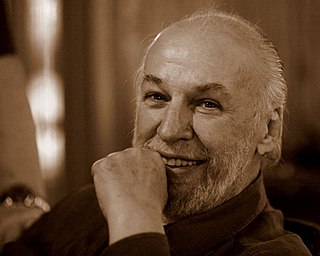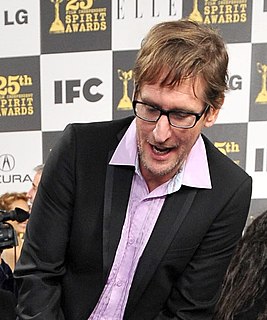A Quote by Ira Glass
I think good radio often uses the techniques of fiction: characters, scenes, a big urgent emotional question. And as in the best fiction, tone counts for a lot. But a lot of effective and interesting radio is based on one character who reacts to the world.
Related Quotes
'Who are we?' And to me that's the essential question that's always been in science fiction. A lot of science fiction stories are - at their very best - evocations of that question. When we look up at the night sky and wonder, 'Is there anyone else out there?' we're also asking who we are we in relation to them.
Who are we? And to me that's the essential question that's always been in science fiction. A lot of science fiction stories are - at their very best - evocations of that question. When we look up at the night sky and wonder, "Is there anyone else out there?" we're also asking who we are we in relation to them.
Listen- my relationship with radio on a personal level is nothing but a one way love-a-thon... I love radio, I grew up on radio. That's where I heard Buddy Holly, that's where I heard Chuck Berry. I couldn't believe it the first time I heard one of my records on the radio, and I STILL love hearing anything I'm involved with on radio, and some of my best friends were from radio. But we were on different sides of that argument, there's no question about that.
A radio play actually ended up being the first acting job I ever had. A lot of times when I'm on camera, I'm playing characters that are more like myself, and I don't get to do a lot of real character work. But when you're doing animation, you are the very epitome of colorful characters. I think I'm just really into make believe.
Mostly the natural landscapes work as a sounding board for my characters, so they can understand themselves, and it acts as a mirror in which we readers see ourselves. The natural world is the place into which all my characters have to situate themselves in order to be who they really are, and that makes my rural fiction feel different from a lot of urban fiction.
Being a fan of science fiction, I collect a lot of science fiction art work and so if you go to my house there's like a library and you just geek out on science fiction material. A lot of the colony worlds specifically are built as a melting pot of different societies, because the world is at a point where there are only two zones that are left inhabitable.
All fiction, if it's successful, is going to appeal to the emotions. Emotion is really what fiction is all about. That's not to say fiction can't be thoughtful, or present some interesting or provocative ideas to make us think. But if you want to present an intellectual argument, nonfiction is a better tool. You can drive a nail with a shoe but a hammer is a better tool for that. But fiction is about emotional resonance, about making us feel things on a primal and visceral level.





























